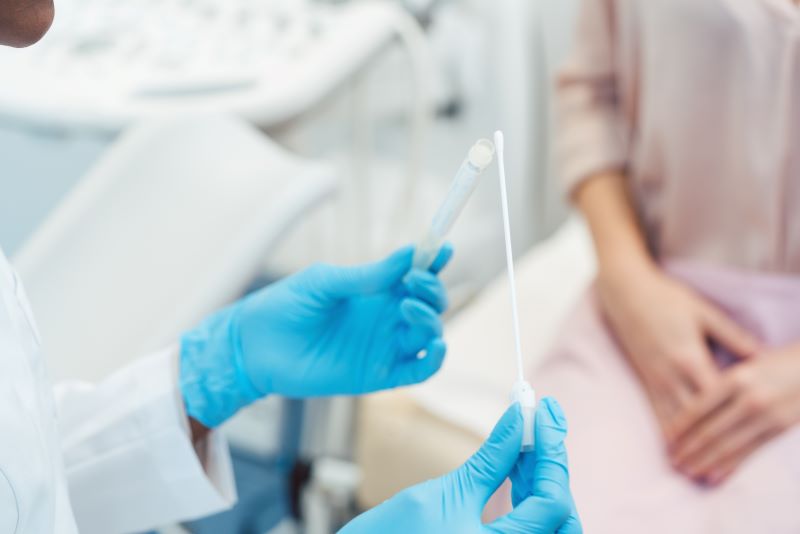
How Do I Know If I Have an STI?

Sexually transmitted infections (STIs) are common health concerns that can affect anyone who is sexually active. Understanding the signs and symptoms of an STI and knowing when to seek medical attention can help protect your health and that of your partner(s).
What Are STIs?
STIs are infections spread through sexual contact, including vaginal, anal, and oral sex. They are caused by bacteria, viruses, or parasites and include conditions like chlamydia, gonorrhea, syphilis, herpes, human papillomavirus (HPV), and human immunodeficiency virus (HIV). While some STIs cause noticeable symptoms, others can be silent, making it important to get tested regularly.
Common Symptoms of STIs
STIs can cause a wide range of symptoms, but not everyone will experience them. Below are some common signs to watch for:
- Genital Symptoms:
- Unusual discharge from the vagina, penis, or anus
- Burning or pain during urination
- Itching, redness, or irritation in the genital area
- Sores, blisters, or warts on or around the genitals
- General Symptoms:
- Unexplained fever, fatigue, or body aches
- Swollen lymph nodes, especially in the groin
- Pain during sex
- Rectal pain, bleeding, or discharge
It’s important to note that some STIs, such as chlamydia and gonorrhea, may have no symptoms at all, especially in the early stages. According to the Centers for Disease Control and Prevention (CDC), up to 70% of women and 50% of men with chlamydia may not notice symptoms.
When Should I Get Tested?
You should consider STI testing if:
- You have symptoms that might indicate an STI.
- You’ve had unprotected sex.
- Your partner has been diagnosed with an STI or has symptoms.
- You’re starting a new sexual relationship or have multiple partners.
- You’ve shared needles for drug use.
The CDC recommends regular screening for sexually active individuals, including annual chlamydia and gonorrhea testing for sexually active women under 25 and those at higher risk. Pregnant individuals should also be tested for syphilis, HIV, hepatitis B, and hepatitis C early in their pregnancy to protect their health and prevent passing infections to their babies.
How Are STIs Diagnosed?
Healthcare providers use various methods to diagnose STIs:
- Physical Exam: A provider may check for visible signs like sores, warts, or discharge.
- Lab Tests: These may include urine tests, blood tests, or swabs from the affected area (e.g., throat, vagina, anus).
- Self-Sampling: At-home testing kits are also available for some STIs, offering privacy and convenience.
What If I Test Positive?
If you test positive for an STI, don’t panic. Many STIs are treatable and even curable with medication. For bacterial STIs like chlamydia and gonorrhea, antibiotics are typically effective. Viral STIs, such as herpes or HIV, cannot be cured, but they can be managed with antiviral medications.
It’s also important to inform any recent sexual partners so they can get tested and treated if necessary. Your healthcare provider can help guide these conversations and may offer anonymous partner notification services.
How Can I Prevent STIs?
The best way to prevent STIs is to practice safer sex:
- Use condoms or dental dams consistently and correctly.
- Get vaccinated against HPV and hepatitis B.
- Have open conversations with sexual partners about STI testing.
- Avoid sharing needles or other injection equipment.
Regular check-ups with your healthcare provider can help you stay informed about your sexual health and address any concerns early.
Final Thoughts
STIs can affect anyone, but taking proactive steps like regular testing and using protection can reduce your risk and ensure early treatment if needed. If you have any symptoms or concerns, don’t hesitate to talk to a healthcare provider. Early diagnosis and treatment are key to maintaining your health and well-being.
References:
- Bishop, C. (2022, December 8). The dangers of undiagnosed sexually transmitted infections. American Society for Microbiology. Retrieved from https://asm.org/articles/2022/december/the-dangers-of-undiagnosed-sexually-transmitted-in
- Centers for Disease Control and Prevention. (2021). STDs: What you should know. Retrieved from https://www.cdc.gov






